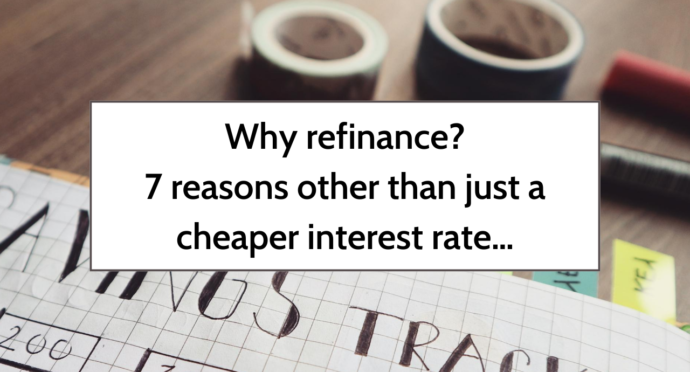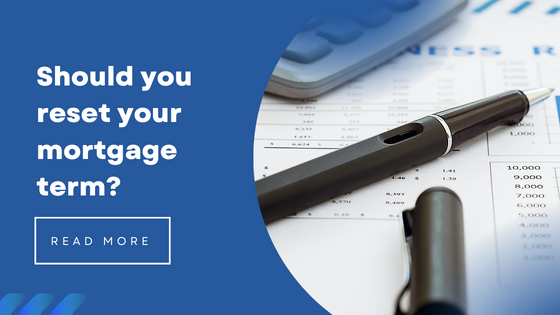Article by Patrick Lynch, Head of Operations
With many cheap home loan interest rates available, the lowest ever RBA rate, people being cost-conscious and Banks chasing business because of limited property transactions, refinancing activity is at record levels. Refinancing is repaying your current home or investment loan with a new one (generally, but not always, with a new Lender). When it comes to refinancing, most people just focus on the interest rate.
Here are 7 other common reasons (separate to rate) that might also make refinancing worthwhile:
- Maximising cash flow
- Extending Interest only
- Accessing equity
- Changing interest rate type (fixed vs. variable)
- Improving the Loan and/ or Asset Structure, including new loan features
- Consolidating Debt
- Establishing a new Lender relationship
Reasons to refinance
Whilst many clients are just looking to optimise their interest rate, often it can also be about resetting the loan to maximise cash flow (through lower repayments). For example, principal & interest repayments on a new 30-year loan will be less than repayments on an existing home loan with 24 years remaining (all other things being equal). There could also be benefits to adding or renewing/ extending interest only periods rather than maintaining principal & interest repayments.
Are you looking to renovate your home, or maybe purchase an investment property, shares, etc.? If you have owned your home for a number of years, through either debt repayment or increased value, you could have accumulated equity. Refinancing might allow you to access this equity, improving your home or potentially accessing tax benefits should you use those funds to invest in wealth-building opportunities. Speak with your accountant or financial adviser should there be tax implications involved.
What about fixed vs. variable? If you are nearing the end of your fixed rate, it might be appropriate to see what interest rate offers are available, be it fixed, variable or splitting the loan to have both. Right now, if you are on a variable rate, many Lenders are offering great savings if you are ready to fix the interest rate.
Perhaps you have multiple loans secured by multiple properties, maybe even with multiple Lenders. Another reason to refinance could be to simplify the loan and asset structure. By dealing with one Lender, you could save on package fees, annual credit card fees, etc. You could also ensure that loans are not cross-secured (i.e. more than 1 property security), perhaps even releasing a property (e.g. your own home) entirely from a Lender’s clutches! There might be other features that your current loan doesn’t have – offset account, access to redraw, flexibility of repayments, etc. Perhaps you could also benefit from a better Internet Banking set-up or discounts on other products such as credit cards, insurance, etc.
What if you have multiple Lender or debt provider relationships? You might consider debt consolidation, where existing personal or car loans, credit card balances, etc. are combined with your mortgage. This can make it easier to manage your finances. The benefits here can be that home loan debt is generally at a lower rate and, if appropriate, repayment can be spread over a longer term (consider that the total interest cost could be higher should you extend the repayment period).
Finally, don’t just think the here and now. Maybe you have plans – professional or property – for the future, and are concerned that your current Lender won’t be able to assist. It might be worth starting a new Lender relationship where they will view your scenario more favourably.
But what if you are just after a better rate?
If you are happy with your existing Lender, but just looking for a better rate, it might be easier to call them or your Broker and ask what is available rather than start down the application route.
Think also about rate type – as mentioned above, there are some great fixed rate offers available, some of which might even come with the same benefits as your current variable rate loans.
What are the costs to refinance?
If ultimately refinancing is needed, you’ll need time to gather supporting documents to lodge and progress a refinance application. Be aware that there are some costs involved with switching Lenders:
- Exit fees payable to the existing Lender – Discharge and admin fees, fixed rate break cost, etc.
- Upfront fees with the new Lender – Establishment/ settlement fees, valuation, legal, etc.
- Government & other related charges – mortgage registration, PEXA search fees, etc.
- Ongoing fees and exit thereafter – as above, plus loan service fee, package fees, etc.
Some Lenders are paying cash (generally within 10 – 90 days) to anyone who refinances, and this often more than covers the above costs (excluding break fee). Don’t solely focus on the short-term benefit of a refinance rebate – check that the rest of the terms, conditions and features are right.
Closing
Can you get a lower interest rate through refinancing? The answer is probably yes, if you’ve had your loan for (say) 2 years or more, but this isn’t the only reason to proceed with a new application. There can be substantial other benefits that might be even more relevant.
Should you need more information on the above, or we can help you, a colleague, friend or family member, please feel free to contact us.
Long Property blog content provides general information only and has been prepared without taking into account your objectives, financial situation or needs. We recommend that you consider whether it is appropriate for your circumstances and your full financial situation will need to be reviewed prior to acceptance of any offer or product. Nothing on the Long Property website constitutes legal, tax or financial advice and you should always seek professional advice in relation to your individual circumstances.




